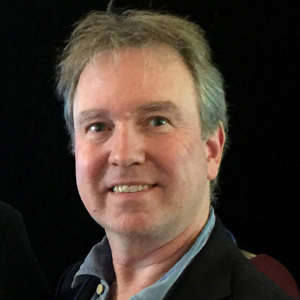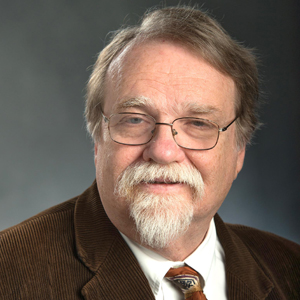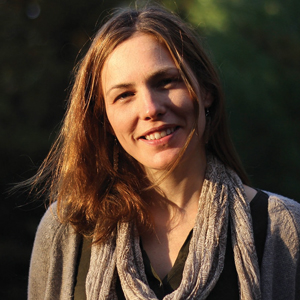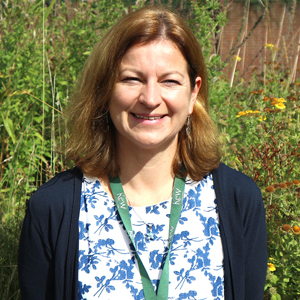Speaker Bios
Several of the world’s leading scholars will discuss Mendel’s work in connection with current challenges involving food security, genetic engineering and preservation of plant biodiversity.

Alan McHughen, PhD
CE Biotechnology Specialist and Geneticist, University of California, Riverside
Alan McHughen, PhD is a public sector educator, scientist and consumer advocate. After earning his doctorate at Oxford University, Dr. McHughen worked at Yale University and the University of Saskatchewan before joining the University of California, Riverside. A molecular geneticist with an interest in crop improvement and environmental sustainability, he helped develop US and Canadian regulations governing the safety of genetically engineered crops and foods. He served on US National Academy of Sciences panels investigating the environmental effects of transgenic plants and the safety of genetically engineered foods and helped review a panel examining sustainability and economic impacts of biotechnology on US agriculture.
Having developed internationally approved commercial crop varieties using both conventional breeding and genetic engineering techniques, McHughen has firsthand experience with the relevant technical, biosafety and policy issues from both sides of the regulatory process. As an educator and consumer advocate, he helps non-scientists understand the environmental and health impacts of both modern and traditional methods of food production. His award-winning book, Pandora’s Picnic Basket; The Potential and Hazards of Genetically Modified Foods uses understandable, consumer-friendly language to explore the myths and genuine risks of genetic modification technology. More recently, McHughen served as a Jefferson Science Fellow at the US Department of State and as a Senior Policy Analyst at the White House, serving under the Obama administration.

Paul B. Thompson, PhD
W.K. Kellogg Chair in Agricultural, Food & Community Ethics, Michigan State University
Paul B. Thompson holds the W.K. Kellogg Chair in Agricultural Food, and Community Ethics at Michigan State University. His research has centered on ethical and philosophical questions associated with agriculture and food, and especially concerning the guidance and development of agricultural techno-science. This research focus has led him to undertake a series of projects on the application of recombinant DNA techniques to agricultural crops and food animals. He served on the US Department of Agriculture’s Agricultural Biotechnology Research Advisory Council (1994–1996); the US National Research Council Board on Agriculture Advisory Committee on Biotechnology (2002–2010); and on the Science and Industry Advisory Committee for Genome Canada (2004−2008).
In addition to his book Food Biotechnology in Ethical Perspective (1997; 2007), Thompson’s publications on biotechnology have appeared in Agriculture and Human Values, Plant Pathology, The Journal of Animal Science, Poultry Science and The Journal of Responsible Innovation, among others. Thompson has also published extensively on the environmental and social significance of agriculture. His 1992 book (with four coauthors) on US agricultural policy, Sacred Cows and Hot Potatoes, was used as a textbook for US Congressional agriculture staff and won the American Agricultural Economics Association Award for Excellence in Communication. His book From Field to Fork: Food Ethics for Everyone was the 2015 Book of the Year for the North American Society for Social Philosophy. His 1995 book The Spirit of the Soil: Agriculture and Environmental Ethics was updated and a 2nd edition was released in 2017.

Amy Richmond, PhD
Professor of Gepgrahpy, United States Military Academy, West Point
Amy Richmond, PhD, focuses on the interactions between environmental resources and human wellbeing. Her current research in sub-Saharan Africa develops an interdisciplinary framework investigating the relationship between environmental processes and human wellbeing to generate models adaptable to any geographic location. Recent work published in academic journals is focused on modeling environmental security in informal urban settlements. Amy earned a PhD in Geography (2005) from Boston University, focusing on the links between environmental resources and economic growth. Richmond has a MA (2002) from Boston University in Energy and Environmental Studies and a BS (Magna Cum Laude) from SUNY College of Environmental Science and Forestry where she focused on Systems Ecology.
Richmond is the author and co-author of several publications, including “Urban Informality and Vulnerability: A Case Study in Kampala, Uganda” in Urban Science; “The Role of Network Science in Analyzing Slums in Rapidly Growing Urban Areas” in Small Wars Journal; “Household Vulnerability Mapping in East Africa’s Rift Valley” in the Journal of Applied Geography; “Modeling Environmental Security in Sub-Saharan Africa” in The Geographical Bulletin; and “The Impact of Pollution in a Multi-Country Lake: A Case Study of Lake Victoria in the Ugandan Context” in Water Planet: The Culture, Politics, Economics, and Sustainability of Water on Earth.

Tiziana Ulian, PhD
Senior Research Leader of Diversity & Livelihoods, Natural Capital and Plant Health Department, Royal Botanic Gardens, Kew
Tiziana Ulian, PhD, is a Senior Research Leader of Diversity & Livelihoods in the Natural Capital and Plant Health department of the Royal Botanic Gardens, Kew, and works at Kew’s Millennium Seed Bank in the U.K. She leads a research group developing plant diversity approaches to support communities in locations and economies where nutritional, health, income and biodiversity issues are of paramount importance. Ulian manages several research projects ranging from tree seed conservation, community livelihoods, and afforestation. Over the past 20 years she has been involved in 27 projects in 16 countries, working with a wide range of partners including research institutes, governmental and non-governmental organizations in Europe (Italy and U.K.), Latin America (Venezuela, Chile, Mexico, Peru, Dominican Republic, Cuba, Colombia) and Africa (Botswana, Kenya, Mali, Burkina Faso, Niger, South Africa, and Mozambique). She has given about 30 talks at international conferences, published nearly 30 peer-reviewed journal publications and more than 20 articles in the popular press and is the leading editor and co-author of the book Wild Plants for a Sustainable Future: 110 Multipurpose Species. Tiziana has a research background in plant ecology and conservation biology and is passionate about carrying out plant research and conservation activities on useful plants and the ecosystem services they provide to the environment and local communities.
